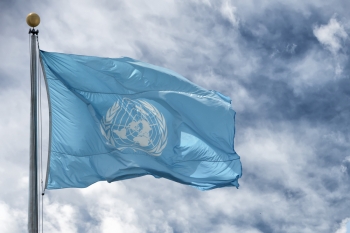On 25 May, during the third day of the PoC Week, the members of the Security Council met in order to discuss in an open debate the latest report of the UN Secretary-General on the protection of civilians in armed conflict (S/2022/381). The report is being submitted against the backdrop of the situation in Ukraine, which has caused unimaginable suffering and has far-reaching consequences. Hospitals, schools, apartments, and shelters have all been targeted. Overall, during the meeting, member states underlined the need to strengthen the Protection of Civilians, who are the main target during armed conflict. For this reason, according to Secretary-General Antonio Guterres, full compliance to International Humanitarian Law is necessary and a case-by-case approach has been identified as the best solution for implementing appropriate strategies. Moreover, each country condemned the Russian invasion of Ukraine, calling for a strengthening of the humanitarian actions in the country and in the neighboring countries that are welcoming refugees.
The first statement was made by David Mardini, Director-General of the International Committee of the Red Cross (ICRC). Mr. Mardini remarked that, while on the normative side there have been improvements, this year is not different from the preceding, and indiscriminate and disproportionate attacks against civilians are happening yet.
Among the speaker, one fundamental concept was raised by David Miliband, President and CEO of the International Rescue Committee, who stated that one of the solutions for improving the protection of civilians in conflicts is to ensure humanitarian access. He then added that the European Union is promoting the collection of data about this topic and the creation of an independent body. He also affirmed that currently 56 conflicts are active and that 200 million people suffer due to conflicts. The importance of humanitarian access was then supported by Rachel Boketa, Country Director for Women International in the Democratic Republic of Congo (DRC); she underlined how the lack of humanitarian access in the Democratic Republic of Congo has led the country to have the largest number of Internally Displaces People in the world, with 27 million people in a situation of high insecurity. Rachel Boketa then focused on other relevant points such as: the impact of COVID-19 and of the war in Ukraine – both events worsening the situation in the country -; the necessity for a gender-based approach and community-based strategies for the protection of civilians; finally, she strengthens the importance of the civil society and particularly, of women civil society.
The floor was passed to the representatives of the member states. In general, they all pointed out that the one-size-fits-all approach is no longer applicable, that peacekeeping operations are fundamental for the protection of civilians, and that the principles of neutrality, impartiality and independence need to be taken into consideration when developing strategies of PoC. Furthermore, all countries drew attention on the inapplicability of the Resolutions for the PoC due to the escalation of the conflict in Ukraine, thus condemning the actions of Russia and calling for an immediate stop to the perpetrated violations of human rights. Concerning this, the statement of the representative of Russia on the other hand, focused on the condemnation of the actions of the United States in Afghanistan and of the crimes committed by Kyiv, especially in the region of Donbas where, according to Russia, Ukraine violated the freedom of its citizens. Moreover, the representative of Russia stated that a few days ago UK tried to cast doubt on Russia’s conclusion about the Ukrainian provocation in Bucha in April. After this, the representative of the UK stated that the day-by-day violations that Russia is made in Ukraine cannot be obscured and that to prevent these actions member states must implement the resolutions of the Security Council. In this context, he emphasized the impossibility to turn these words into actions because some permanent members with veto power block the actions for the PoC – obscuring their real purposes.
Other relevant statements were made by the representative of the European Union and the one of Ukraine. The first stated that “the latest example of war causing immense suffering to civilians is the conflict caused by Russia in Ukraine” and continued by condemning the use of explosive weapons by Russia in civil areas and on civilian infrastructures. On this, the EU encouraged national investigation to be implemented for PoC and for the protection of humanitarian workers. After this statement, Ukraine exposed its alliance with the position of the EU. The representative then exposed the situation in the country: millions of Ukrainians are currently fighting for their lives while Russia continues to indiscriminately attack; there are now 8 million IDPs and it has been identified as the worst refugee crisis in Europe after WWII. Moreover, 1.4 million people have been deported to Russia, identifying forms of colonialism
In conclusion, all the representatives of the member states expressed their opinion concerning the current level of protection of civilians during conflicts and exposed the situation in their own countries, underling what each country is doing in this regard. Overall it has been emphasized the necessity to coordinate in a better way peacekeeping operations and to adopt different approaches for each country in need; generally, all members called for more respect for the Security Council Resolutions and for the norms of International Humanitarian Law.
by Alexia Tenneriello







